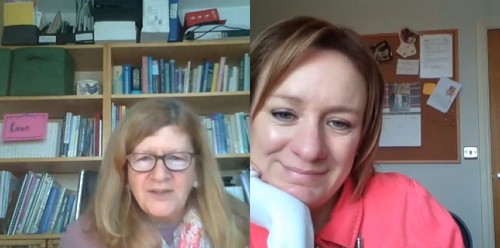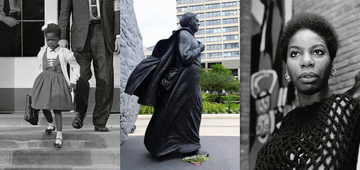- 10 April 2025

As lead developers, we shaped a training offer that aimed to meet the needs of staff who told us they felt a lack of confidence around the topic of mental health. They weren’t always sure how to start a conversation, respond to, or signpost people when they shared their experiences of struggle or worries relating to mental health or mental illness. We are passionate about this work and a key message for this programme has been, “There is no health without Mental Health”.
Our journey began what seems like a long time ago, yet in reality, has been just 10 months. We sat down (virtually), with Sam King and Nelly Araujo, our colleagues at RSPH, to explore what MECC for mental health could be and how a training offer for the North of England could support the work of frontline staff in their thousands of day-to-day contacts with people.
It soon became apparent that the pandemic, painful and cruel in many ways, had also bought about the normalising of a conversation that asks “How are you?” at a deeper level than would have previously been had. People began to understand that the impacts were different for everyone and we began to really listen to other people’s experiences with a more empathetic ear.
Our original brief was to develop materials that could support face-to-face delivery in Primary Care. However, as the programme developed and in response to consultation across the STP areas, we are now in a position to offer online, blended and face-to-face training options. This will allow as many people as possible to access the training in a way that is accessible for them.
It was important to us that we ensured case studies, videos and supporting materials reflected the richness of cultures across the North of England, so you’ll hear a range of diverse northern accents across the suite of materials.
George’s story
In the materials, we have a case study about a fictional “George” who is recently bereaved of his wife and struggling to find the positives in his life. In our pilot delivery with colleagues in Lancashire & South Cumbria, we covered this case study. Then in our session the following week, we checked in to see if people had been able to make use of the MECC for mental health conversations in any of their work. A colleague shared with us that she had seen “George” in her clinic, a recently bereaved gentleman who had become upset when she asked him how he was really coping. She offered some support but the gentleman declined - he didn’t want to make a fuss. But the following week, when he returned for a follow-up appointment, he had reflected on the conversation and said he thought perhaps it might be good to get some support after all.
The case study of the real-life “George” is really at the heart of what we hope this training can achieve. Normalising a conversation about mental health with as many people as possible, and perhaps not just in our professional roles but also with friends and family. We want to ensure that people can access available support when they may need it. The truth is, at some point, we will all need support with our mental health. We all have mental health and we will all experience times that challenge our mental wellbeing.
As we continue the rollout of this training, we also appreciate that colleagues in frontline health services may also need time, space and perhaps support to process the impact that the last year has had on them, both personally and professionally. This training has been a space for people to reflect on this and to consider how and where self-care can be built-in. We hope that by supporting compassionate and caring workplaces, where people can ask for what they need to stay healthy both physically and mentally, we can ensure we are all in a better position to be able to Make Every Contact Count for EVERYONE’s Mental Health. Because there is no health, without Mental Health.
About the project
Commissioned by Health Education England (HEE) and delivered by RSPH, the MECC for mental health project will develop mental health promotion training using the Making Every Contact (MECC) approach.
Using a cascade training model, the aim is to upskill 1000 frontline non-specialist staff working in primary and community care settings across the North of England (North West, North East and Yorkshire), to integrate mental health promotion into routine practice.
If you are interested in becoming involved in this project please refer to our current expressions of interest call.



